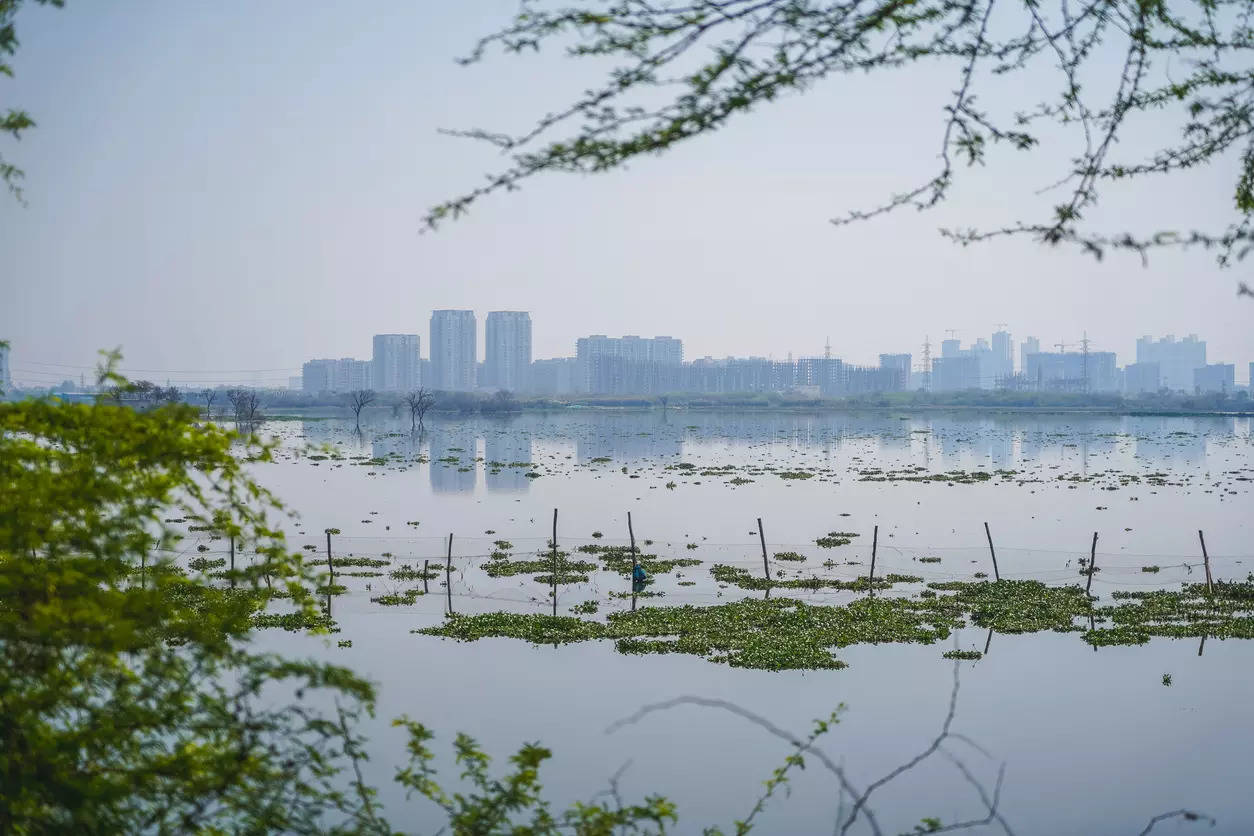
GURUGRAM: Five ponds, which were supposed to be restored under an initiative by MCG and GMDA, have been overrun by a former councillor’s office, construction waste, housing plots and temples – highlighting a pattern of disregard for environmental laws despite rules that prohibit such activities.
According to MCG’s response to a right to information (RTI) query filed by activist Vaishali Rana last year, ponds in Sector 50 township Nirvana Country, Badshapur, Kadarpur and Gwalpahari have been encroached on.
At Nirvana Country, the RTI response said, a former MCG councillor built an office directly over the pond. Google satellite imagery from this month shows a building at a spot where a natural water catchment used to be, Rana said on Friday.
The RTI response said that another pond in Badshapur, an area prone to waterlogging and flooding during monsoon every year, was divided into plots for housing colonies, according to revenue records.
In Kadarpur, two temples were built over two separate ponds, Rana said.
The most blatant violation appears to have been in Gwalpahari, where a firm is allegedly dumping construction debris and materials into a pond.
“These encroachments are particularly alarming because Gurgaon desperately needs to restore its natural water catchments. The sectors around these waterbodies have been flooding for years, even after light rain. Restoring these ponds would provide natural drainage and significantly reduce waterlogging in these areas,” Rana said.
Residents said they have complained about these encroachments to authorities for years, but no action is taken. “Every monsoon, our sector becomes a lake because there’s nowhere for water to go. It’s frustrating to learn that a natural pond that could have alleviated this problem was built over by the very people who should be solving our flooding issues,” said Priya Gupta, a resident of Sector 50.
Experts say natural ponds such as these are protected under the Water (Prevention and Control of Pollution) Act, 2974. Section 24 of the Act specifically prohibits the use of ponds for disposing of polluting matter, and Section 43 states penalties for actions leading to such pollution.
The Supreme Court, in 2001, held in a case (In Hinch Lal Tiwari vs Kamala Devi and others) that ‘ponds’ were a public utility meant for common use and they could not be allotted or commercialised.
The apex court has since issued similar judgements.
Sunil Harsana, an ecologist, said ponds don’t just mitigate chances of urban flooding but also help recharge groundwater.
“Restoration of these ponds would not only help avoid flooding, an annual occurrence that plagues several sectors of Gurgaon, but would also contribute to groundwater recharge in a region facing severe water scarcity. The natural ecosystem services provided by these waterbodies far outweigh any short-term benefits gained from their encroachment,” Harsana said.
Asked about the RTI response, a GMDA official said the authority will look into the issue.
“We will investigate if these areas are mentioned as water bodies in records. In case they are, then we will take action as per norms,” said RS Bhath, district town planner (enforcement), GMDA.












